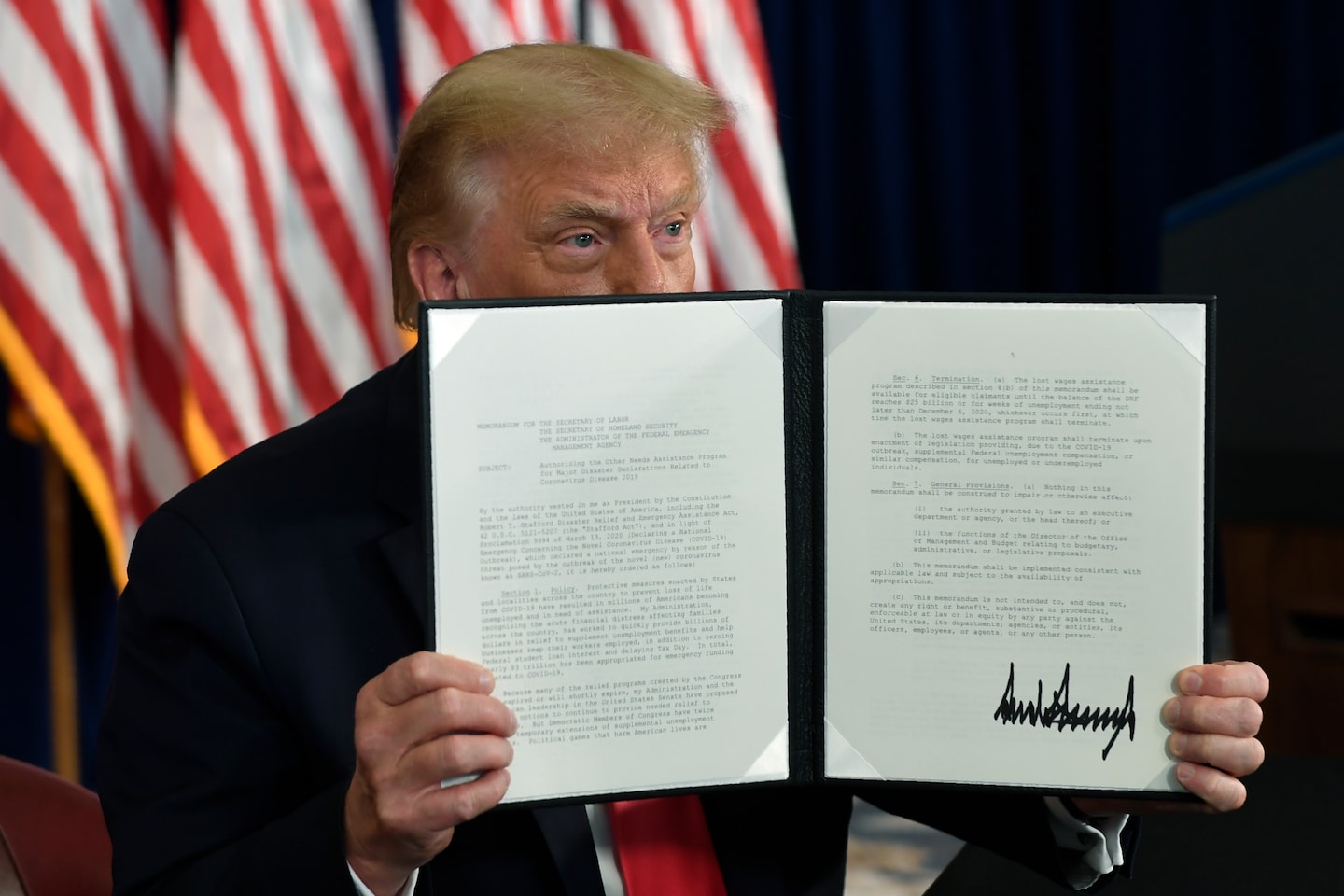Trump’s inadvertent tax hike

With negotiations over more coronavirus relief at an impasse, Trump decided to take matters into his own hands. On Saturday, he signed four executive measures, including one deferring employee-side payroll taxes.
Astoundingly, even the White House advisers whose lifelong raison d’etre has been cutting taxes (cough cough, Larry Kudlow) somehow failed to realize they may have created a tax hike next year. That’s because of how this policy could interact with other provisions of the tax code.
As misguided as an outright payroll tax cut would have been, Trump’s payroll tax deferral is definitely dumber.
Under Trump’s memorandum, payroll taxes that normally would be automatically withheld from employees’ paychecks every pay period don’t have to be withheld through the end of 2020. Still, the taxes must eventually be remitted to the Internal Revenue Service. That means a balloon payment will come due in 2021. So, who will be left holding the bag?
There are three possibilities.
Scenario 1: Congress opts for a tax jubilee, forgiving these delayed payroll taxes altogether and converting Trump’s tax deferral into an outright tax cut. Trump is clearly hoping for this.
These payroll taxes fund Social Security, though, and a massive payroll tax cut would cause the program’s trust fund to go broke faster than already expected. Shortchanging the entitlement system would be extremely controversial. It’s unlikely that lawmakers would suddenly agree to a policy that would provide fodder for endless attack ads. After all, Congress is not exactly great at coming together to pass controversial, divisive legislation; if lawmakers were, presumably Trump wouldn’t be attempting coronavirus relief via executive fiat.
Scenario 2: Congress does nothing, and employees still have to pay all these deferred taxes when filing their income tax returns next year. That is, a huge, unexpected bill will come due around April 15.
This would be a bill families likely didn’t budget for, since these taxes usually are withheld from paychecks; many may be expecting refunds that they’d already mentally earmarked for rent or a big purchase. Asking Americans to suddenly pay hundreds or thousands of dollars they hadn’t anticipated would amount to a huge fiscal contraction when the economy may well still be in recession.
Realistically, though, a lot of households might never realize that they’re supposed to pay these deferred taxes because standard tax-prep software — at least as currently programmed — probably wouldn’t tell them if they had been under-withheld on payroll taxes.
And under U.S. tax law, their employers would then become liable for the deferred employee-share of payroll taxes that were never paid.
This brings us to Scenario 3: Employers — including cash-strapped small businesses — are left holding the bag. And at this point, the tax bill could actually get bigger. Here’s why:
Come 2021, if and when employers pay the IRS for the payroll tax debts their employees never paid, under U.S. tax law such payments would be treated as income to each affected employee.
Because the payments for employees’ unpaid taxes now get treated as employee income, employers would have to remit additional income and payroll taxes — essentially, they have to pay taxes on taxes, bizarre as it may sound. (Accountants refer to this as “grossing up.”) Employers can try to recoup the cost of these additional expenses from their employees . . . but good luck if those employees have already moved on to other jobs.
All this would raise the cost to employers of hiring or retaining any given employee these next few months. (The exact amount of the additional cost varies according to the employee’s salary and tax bracket.) Any number of tax experts could have warned Trump of this impact on beleaguered employers and employees.
Of course, employers with decent accountants or tax attorneys might discover this potentially enormous new tax exposure before they revamp their entire paycheck withholding process. Tax advisers would probably tell them to just ignore the Trump memorandum, not defer employee-side payroll taxes and conduct business as usual.
This means the best-case scenario is: nothing happens. Which sounds like the prayer Americans mutter every time Trump attempts a half-baked policy like this one.
Read more:






